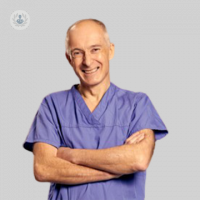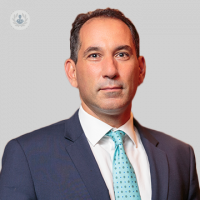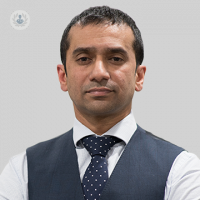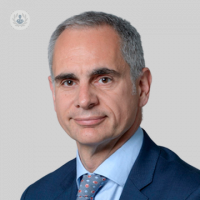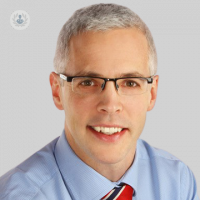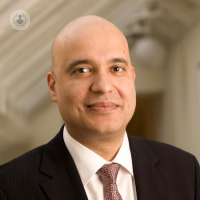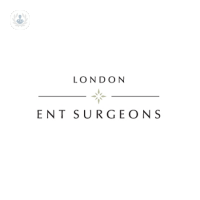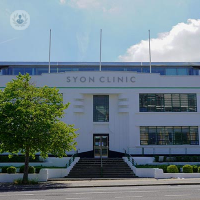What is dysphagia?
Dysphagia is the medical term for a person who has swallowing difficulties. Some people cannot swallow certain foods or liquids, whilst others have trouble swallowing at all. The condition is usually caused by nerve or muscle problems, and is more common in the older generation and babies. There are three different types:
- Oral dysphagia – which occurs in the mouth and is sometimes caused by tongue weakness, especially following a stroke.
- Pharyngeal dysphagia – is a problem in the throat that is normally caused by neurological problems, such as Parkinson’s disease.
- Oesophageal dysphagia – is in the oesophagus and is usually because of a blockage or irritation and requires surgery.

What are the symptoms of dysphagia?
The symptoms of dysphagia may include:
- Pain or discomfort when swallowing
- Expulsion of food or liquid from the mouth
- Involuntary drooling
- Residues of food in the mouth or tongue
- Frequent clearing of the throat
- Swallowing in very small pieces
- The feeling of a blockage in the throat
- Frequent bronchitis and pneumonia
What are the causes of dysphagia?
Normally, dysphagia occurs secondary to another disease or injury, such as:
- A condition to affect the nervous system – stroke, head injury, multiple sclerosis, dementia
- Cancer
- Gastro-oesophageal reflux disease (GORD)
Risk factors for dysphagia include ageing as this is due to general wear and tear on the body over time. Neurological conditions can make dysphagia more likely.
How is dysphagia diagnosed?
A speech-language specialist will try to determine the problem. The patient will take a:
- Swallow study – where the specialist tests different consistencies of food and liquid.
- Barium swallow test – after swallowing a barium-containing liquid, the barium shows up in an X-ray to help the doctor see what is happening in the muscles of the oesophagus.
- Endoscopy – a camera is used to look down the oesophagus.
How is dysphagia treated?
The treatment depends on the type of dysphagia that the patient has. Oral dysphagia is a neurological problem and treatment can be a challenge. Swallowing therapy can be done with a speech and language therapist. The patient may also need to be fed through a feeding tube. A nasal tube or PEG (percutaneous endoscopic gastrostomy) is used to feed a patient who is at risk of pneumonia, malnutrition or dehydration.
Oesophageal dysphagia usually requires surgery. If the oesophagus needs to be widened then a small balloon is inserted and then removed. In cases of stiff muscle, Botox® is used to paralyse it in order to reduce constriction. If cancer is the cause of dysphagia, the patient is referred to a specialist for treatment to have a tumour removed surgically.
Dysphagia
Professor Martin Anthony Birchall - Otolaryngology / ENT
Created on: 10-21-2015
Updated on: 06-20-2023
Edited by: Conor Dunworth
What is dysphagia?
Dysphagia is the medical term for a person who has swallowing difficulties. Some people cannot swallow certain foods or liquids, whilst others have trouble swallowing at all. The condition is usually caused by nerve or muscle problems, and is more common in the older generation and babies. There are three different types:
- Oral dysphagia – which occurs in the mouth and is sometimes caused by tongue weakness, especially following a stroke.
- Pharyngeal dysphagia – is a problem in the throat that is normally caused by neurological problems, such as Parkinson’s disease.
- Oesophageal dysphagia – is in the oesophagus and is usually because of a blockage or irritation and requires surgery.

What are the symptoms of dysphagia?
The symptoms of dysphagia may include:
- Pain or discomfort when swallowing
- Expulsion of food or liquid from the mouth
- Involuntary drooling
- Residues of food in the mouth or tongue
- Frequent clearing of the throat
- Swallowing in very small pieces
- The feeling of a blockage in the throat
- Frequent bronchitis and pneumonia
What are the causes of dysphagia?
Normally, dysphagia occurs secondary to another disease or injury, such as:
- A condition to affect the nervous system – stroke, head injury, multiple sclerosis, dementia
- Cancer
- Gastro-oesophageal reflux disease (GORD)
Risk factors for dysphagia include ageing as this is due to general wear and tear on the body over time. Neurological conditions can make dysphagia more likely.
How is dysphagia diagnosed?
A speech-language specialist will try to determine the problem. The patient will take a:
- Swallow study – where the specialist tests different consistencies of food and liquid.
- Barium swallow test – after swallowing a barium-containing liquid, the barium shows up in an X-ray to help the doctor see what is happening in the muscles of the oesophagus.
- Endoscopy – a camera is used to look down the oesophagus.
How is dysphagia treated?
The treatment depends on the type of dysphagia that the patient has. Oral dysphagia is a neurological problem and treatment can be a challenge. Swallowing therapy can be done with a speech and language therapist. The patient may also need to be fed through a feeding tube. A nasal tube or PEG (percutaneous endoscopic gastrostomy) is used to feed a patient who is at risk of pneumonia, malnutrition or dehydration.
Oesophageal dysphagia usually requires surgery. If the oesophagus needs to be widened then a small balloon is inserted and then removed. In cases of stiff muscle, Botox® is used to paralyse it in order to reduce constriction. If cancer is the cause of dysphagia, the patient is referred to a specialist for treatment to have a tumour removed surgically.
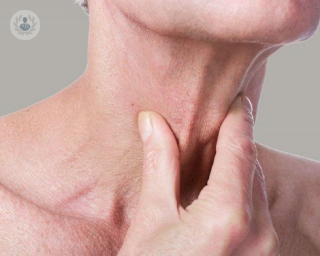

Dysphagia: symptoms and causes of this common condition
By Mr Tony Jacob
2024-11-21
Consultant ENT surgeon, Mr Tony Jacob talks about the common problem of dysphagia (difficulty swallowing) and what causes it. See more


Dysphagia: what is it, and how can it be managed?
By Mr Nick Hamilton
2024-11-21
Dysphagia, or, in other words, swallowing problems, can adversely affect the quality of one's life, even making it difficult to swallow liquids. In this article, esteemed consultant ENT surgeon and laryngologist, Mr Nick Hamilton, outlines the symptoms commonly associated with the condition, and tells us how it can be managed effectively. See more

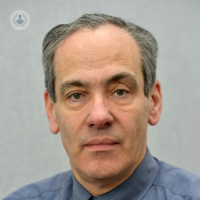
Are swallowing problems a sign of gullet cancer?
By Dr Michael Glynn
2024-11-21
The ability to swallow is something we take for granted right up until the moment that we lose it. Difficulty swallowing, or dysphagia, is an unpleasant symptom of a number of different things, some more serious than others. We turned to top gastroenterologist Dr Michael Glynn to answer our questions about swallowing problems. See more


Can swallowing problems sometimes be psychological?
By Professor Martin Anthony Birchall
2024-11-20
Ever feel the sensation of having something stuck in your throat but not sure if anything is really there? Expert otolaryngologist Professor Martin Birchall explains the possible causes and whether stress or anxiety can cause swallowing problems. See more
Experts in Dysphagia
-
Professor Christos Toumpanakis
GastroenterologyExpert in:
- Neuroendocrine tumours
- Acid reflux
- Inflammatory bowel disease (IBD)
- Coeliac disease
- Chronic diarrhoea
- Dysphagia
-
Mr Tony Jacob
Otolaryngology / ENTExpert in:
- Paediatric ENT
- Thyroid gland surgery
- Rhinitis
- Throat cancer
- Dysphagia
- Sinusitis
-
Mr Ricard Simo
Otolaryngology / ENTExpert in:
- Dysphagia
- Head and neck cancer
- Thyroid gland surgery
- Parathyroid gland
- Pharyngeal pouch
- Salivary gland surgery
-
Mr Nicholas Gibbins
Otolaryngology / ENTExpert in:
- Thyroid gland surgery
- Phonosurgery
- Endoscopic sinus surgery
- Dysphonia
- Dysphagia
- Voice disorders
-
Professor Guri Sandhu
Otolaryngology / ENTExpert in:
- Voice disorders
- Tracheostomy
- Dysphagia
- Paediatric ENT
- Sleep apnoea
- Hoarseness
- See all

Spire Little Aston Hospital
Spire Little Aston Hospital
Little Aston Hall Drive, Sutton Coldfield, B74 3UP
No existe teléfono en el centro.
By using the telephone number provided by TOP DOCTORS, you automatically agree to let us use your phone number for statistical and commercial purposes. For further information, read our Privacy Policy
Top Doctors

London ENT Surgeons
London ENT Surgeons
10 Independents Road, SE3 9LF
No existe teléfono en el centro.
By using the telephone number provided by TOP DOCTORS, you automatically agree to let us use your phone number for statistical and commercial purposes. For further information, read our Privacy Policy
Top Doctors

Syon Clinic - part of Circle Health Group
Syon Clinic - part of Circle Health Group
941 Great West Rd, Brentford TW8 9DU
No existe teléfono en el centro.
By using the telephone number provided by TOP DOCTORS, you automatically agree to let us use your phone number for statistical and commercial purposes. For further information, read our Privacy Policy
Top Doctors
-
Spire Little Aston Hospital
Little Aston Hall Drive, Sutton Coldfield, B74 3UP, Sutton ColdfieldExpert in:
- Bariatric Surgery
- General Surgery
- Orthopaedic surgery
- Robotic Surgery
- Diagnostic Imaging
- Ophthalmology
-
London ENT Surgeons
10 Independents Road, SE3 9LF, East LondonExpert in:
- Allergies nose and ears
- Plastic surgery, reconstructive and aesthetics
- Otology
- Otolaryngology
-
Syon Clinic - part of Circle Health Group
941 Great West Rd, Brentford TW8 9DU, West LondonExpert in:
- Allergies nose and ears
- Allergy Dermatitis
- Allergy
- Clinical analysis
- Anxiety
- Digestive
- See all
- Most viewed diseases, medical tests, and treatments
- Migraine
- Paediatric rheumatology
- Autoimmune diseases
- Joint pain
- Child nutrition
- Nutrition
- Abdominal pain
- Minimal access surgery (keyhole surgery)
- Head and neck cancer
- Neck lump
